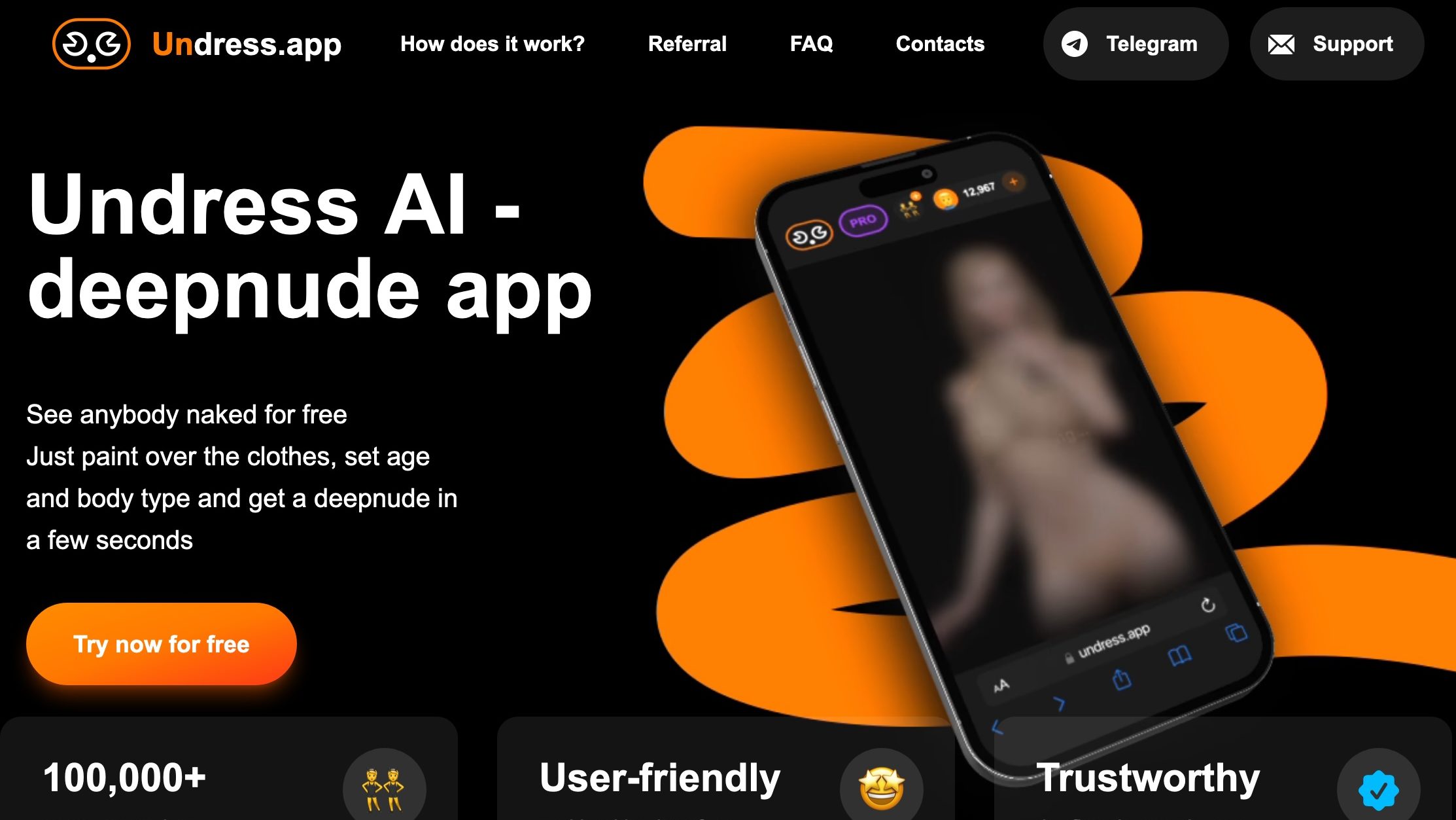Physical Address
304 North Cardinal St.
Dorchester Center, MA 02124
Physical Address
304 North Cardinal St.
Dorchester Center, MA 02124

The growing amount of AI undress apps raises concerns – is it legal or not?
The controversial issue of AI undress apps, capable of making a dressed person appear naked, is currently under government scrutiny. In this blog post, we will delve into the legal and ethical aspects of AI undress apps in 2023, particularly focusing on their legality and potential consequences.
AI undress apps use artificial intelligence (AI) models to manipulate images. In simple words: you input an image of a dressed girl and the app outputs an undressed girl. Such apps are freely available, most of them are paid with unknown persons behind them.

In September 2023 the world was shocked about a new kind of incident (link to CNN article). Spanish authorities launched an investigation of naked young girl AI generated photos that depicted real girls.
In particular, a group of mothers reported that their daughters had received such images. An Instagram influencer Miriam Al Adib took action to raise awareness, revealing that multiple girls had experienced a similar violation. Police have identified some of the individuals responsible for the naked AI girl photos.
Essentially, this incident clearly shows the seriousness of misuse of AI technology. Due to technology progressing so fast, there is no established legal framework for these kinds of issues yet.
The legality of AI undress apps is a complex issue that depends on multiple factors: jurisdiction, privacy regulations, and consent. The legal aspects to consider:
The legal landscape around AI undressing functionality is further complicated by a range of challenges and ethical concerns:
To summarize, the legal status of AI undress apps remains a complex subject that needs careful consideration and proactive measures from all involved sides. While these apps may appear as innocent novelties and sources of entertainment, they have the potential to inflict substantial harm to innocent people. The risks are high, and, while nolim.ai supports Inpainting function that could be as an AI undress function, users can only do it on their own fictional characters.